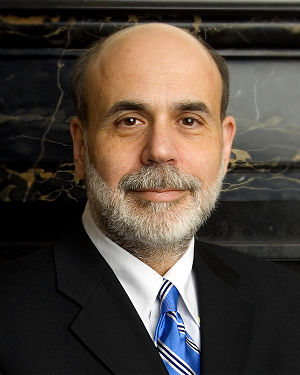 Image via Wikipedia
Image via Wikipedia
--------------------
VISION and foresight are one, not two, of the vital ingredients of creativity because they are inseparable. Vision, by itself, is dreaming - self amusement of little practical value in life. Foresight is turning your vision into action - at the right time.
Vision is the ability to see beyond the horizon. A caged animal looks outside the bars of its prison and imagines the freedom it may have when released.
Vision is a mixture of what cannot be seen but clearly exists, plus what might exist but is by no means certain.
The formation of Rolls-Royce is an excellent example of vision and foresight. Charles Rolls and Henry Royce were men of vision and foresight: Rolls, about the growth of the high-class motor trade, and Royce, about the engineering that would attract the rich buyer.
Two very different men from opposite ends of the social scale with a single vision, they argued and disagreed, as effective partners often must, but never lost their foresight of the car industry that was to grow.
Jointly they had another vital ingredient: Timing. When they came together in 1904, motoring was just becoming a fad of the rich. They saw how it was going to develop.
All vision comes from within, whatever the external stimulus. Henry Ford saw that perfectly when he said that if he had asked his customers what they wanted, they would have replied "faster horses".
And this is the essence of vision: Something we had not already thought about.
Imagine the personal mobility we are going to have access to in the next 20 years. From strap-on helicopters to centrifugally-steadied scooters to pick-and-park versions of shopping cars to motorised shoes.
Another area urgently requiring vision is that of learning - yes, learning, not teaching. The internet offers the opportunity for children and, indeed, all of us, to determine not just what we want to learn but how we want to learn it.
I forecast that within a very few years we shall have children compiling their own syllabuses - with guidance but minimal interference - and studying in a way that suits them, not some artificially concocted "knowledge KPI".
Already, in a children's virtual world (www.WiglingtonAndWenks.com) that my colleagues and I have recently launched, we are finding many children writing to us saying how interesting they find the famous characters from the past whom we have included and how they, the children, have set out to extend their knowledge of history themselves.
And that is brought about by fun, not by threat.
Mentoring, too, requires a vision, as much on the part of the Mentee as on the part of the Mentor. Interesting that the internet allows the child-developed syllabus and the Mentee-developed programme to come together as a seamless, creative exploration of life and all it has to offer. That is my personal vision.
Population explosion, climate imbalance, energy shortage and extremely high expectations of a fairer and healthier planet all offer infinite opportunities for encouraging vision from those now shaping the future world.
How are we to extract the visions of the people? Not by boring checklist surveys; not by mind-blowingly dull focus groups.
Our visions will come from the dramatically simple observations of all those, especially young children, who capture thoughts and ideas without the inhibitions of teaching and training. Their innocence is an untapped source of vision and foresight.
Many years ago, one of my sons, then aged four, pointed to an aircraft overhead leaving a long, white vapour trail.
"Look, Dad," he said, "another of those planes scratching the sky."
Our future depends on the visions we conjure from "scratching the sky".
-----
John Bittleston mentors people in business, career and their personal lives at www.TerrificMentors.com
-----
From TODAY, Monday, 22-Feb-2010
----------
![Reblog this post [with Zemanta]](http://img.zemanta.com/reblog_e.png?x-id=10b19990-97b8-48c4-aef9-48dc4b4bea5e)

![Reblog this post [with Zemanta]](http://img.zemanta.com/reblog_e.png?x-id=721dfeef-d40d-4253-bb46-d02b6bebc460)

![Reblog this post [with Zemanta]](http://img.zemanta.com/reblog_e.png?x-id=ba872e23-2ea6-4801-9d81-a17655a43582)

![Reblog this post [with Zemanta]](http://img.zemanta.com/reblog_e.png?x-id=b52856e3-e6b6-4762-9555-3fb0229e4d55)

![Reblog this post [with Zemanta]](http://img.zemanta.com/reblog_e.png?x-id=f5af556c-b3fb-44d5-828a-23fc18bcd5e3)

![Reblog this post [with Zemanta]](http://img.zemanta.com/reblog_e.png?x-id=65a9fea7-0fc0-4c23-b2e0-594cde013cf4)

![Reblog this post [with Zemanta]](http://img.zemanta.com/reblog_e.png?x-id=3be073aa-60b2-429e-a331-2ee8bdf1dbd3)
![Reblog this post [with Zemanta]](http://img.zemanta.com/reblog_e.png?x-id=d9d4dc02-4e7a-4a69-bdb1-7db3d4275039)

![Reblog this post [with Zemanta]](http://img.zemanta.com/reblog_e.png?x-id=2ed00d85-68a0-44e9-863f-1a21c3051c2b)

![Reblog this post [with Zemanta]](http://img.zemanta.com/reblog_e.png?x-id=d4a3a776-f9a5-487e-9c5d-801873867125)

![Reblog this post [with Zemanta]](http://img.zemanta.com/reblog_e.png?x-id=5f1fbc82-5299-484f-95d2-86f58dc90e29)

![Reblog this post [with Zemanta]](http://img.zemanta.com/reblog_e.png?x-id=b398beb6-5a34-4456-b660-ebff7b62363c)
